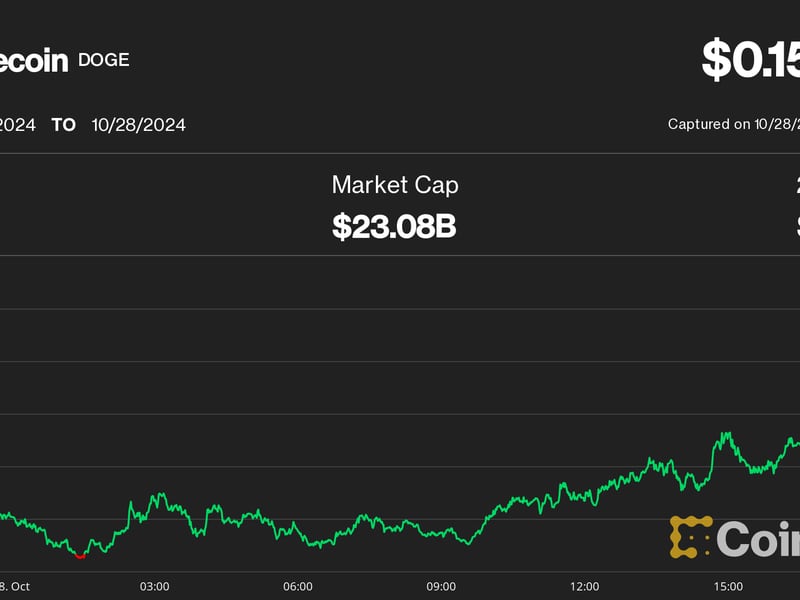At the heart of every blockchain network is a “consensus mechanism,” or system of rules designed to align participants in updating the network’s state. From time to time, participants must opt in to a modification to these rules, known as “hard fork,” or else remain on a legacy version of the network.
With a change in administration forthcoming, the Securities and Exchange Commission (SEC) has an opportunity to institute a hard fork of its own with respect to its approach to crypto regulation. Although legislation is necessary to establish a fulsome legal framework for crypto, the SEC can abandon its regulation-by-enforcement playbook in favor of a pro-innovation regulatory framework that scales to accommodate novel markets.
We need a hard fork in crypto regulation to address four key pain points:
Every offer or sale of a security must be registered with the SEC, absent an exemption. This raises two problems for crypto asset issuers. First, it is unclear whether any given crypto asset is a security. Second, the current registration process and issuer-specific exemptions are onerous and incompatible with the characteristics of many crypto asset offerings.
The term “security” is defined to include, among other things, any stock, note, bond or investment contract. Federal courts have consistently held that crypto assets, in and of themselves, are not securities, but may be sold as the object of an investment contract security. Of course, instruments such as common stock and warrants are securities whether issued in tokenized form or not. But the most widely traded crypto assets more closely resemble currencies, trading cards and other commodities that ordinarily fall outside of the security definition.
Issuers of crypto assets have addressed the risk of inadvertently violating the registration requirement by relying on various registration exemptions when engaging in offerings of crypto assets that may constitute investment contracts. However, the SEC has sued many such issuers for alleged violations of the registration requirement under the theory that the crypto assets sold as the object of an investment contract inherit the investment contract’s security status. There is no legal precedent to support this viral theory of security status, which would make many ordinary commodities sold in the stream of commerce into securities.
A new administration can eliminate this regulatory friction for issuers by clarifying that crypto assets sold as the object of an investment contract that do not independently qualify as a security are not subject to the registration requirement.
Issuers of crypto assets that do meet the definition of a security today face the false choice of filing a registration statement or relying upon an exemption from registration. Although SEC Chair Gary Gensler has said that such issuers need only fill out “a form on our website,” the registration process is designed for massive companies under centralized management seeking to go public rather than teams of software developers intending to exit to a decentralized community. The SEC should evaluate whether reforms to the registration process are necessary and appropriate to accommodate crypto asset issuers, as it has done in the past for asset-backed security issuers.
Additionally, the SEC has broad authority to exempt certain activities, products and transactions from the registration requirement if necessary or appropriate in the public interest. It should use this authority to propose additional registration exemptions for crypto-native methods of distribution, such as offerings to technologically sophisticated protocol users, validator operators, play-to-earn gamers and testnet participants.
Finally, the SEC should propose a “safe harbor” from the registration requirement for airdrops. It is well-understood that a distribution of a security is not a “sale” if the recipient of the security does not individually bargain to contribute cash or other tangible or definable consideration to the distributor in exchange for the security. However, the SEC has nonetheless characterized airdrops as subject to the registration requirement. The SEC should codify certain conditions that airdrops can satisfy to be safe harbored from constituting “sales.”
Users of proof-of-stake blockchain networks can commit their crypto assets as stake to help secure the network and earn rewards in accordance with its consensus mechanism. Many such users choose to do so by retaining a staking-as-a-service provider or using a liquid staking protocol. However, the SEC maintains that these staking arrangements constitute investment contract securities subject to registration.
While many of these staking offerings arguably constitute technical services rather than investment contracts, the SEC should establish a registration exemption for offers and sales of any staking services that constitute securities to assure that users of proof-of-stake blockchains are able to access these vital services.
The diversity of participants in the crypto markets require a broad range of custodial solutions. Crypto hobbyists tend to prefer to use non-custodial digital wallet software, whereas financial institutions are more likely to retain a custodial digital wallet provider. However, the SEC has made it challenging for industry participants to access both types of custodial solutions.
The agency has brought lawsuits against the developers of some of the most popular non-custodial software products asserting that these developers are brokering transactions in securities. Additionally, the SEC issued a staff accounting bulletin that effectively requires public companies offering crypto asset custody services to report the custodied crypto assets as liabilities on their balance sheets. As a result, many custodial banks have opted not to offer crypto asset custodial services because they would be subject to adverse regulatory capital treatment with respect to these assets.
At the same time, the SEC has prohibited broker-dealers from offering custodial services for crypto assets, unless they qualify as a “special-purpose” broker-dealer and forego offering custodial services for traditional securities and non-security crypto assets. Further, the SEC has opined in a recent proposed rulemaking that registered investment advisers must always custody client crypto assets with a qualified custodian because such assets constitute “funds” or “securities” under the agency’s custody rule.
The SEC can immediately remove these barriers for crypto custodial solutions by withdrawing the staff accounting bulletin, its lawsuits against non-custodial digital wallet software providers and its “special-purpose” broker-dealer restrictions. Moreover, the agency can propose new amendments to the custody rule to clarify which, if any, crypto assets qualify as “funds” and establish reasonable exceptions from the qualified custody requirement, such as for staking and exchange trading.
Operators and developers of crypto asset trading venues face three core challenges.
First, it is unclear whether crypto assets initially sold as the object of an investment contract are themselves securities that can only be listed for trading on SEC-registered platforms.
Second, the registration requirements for securities exchanges are incompatible with the way that centralized and decentralized crypto trading venues currently operate.
Third, SEC-registered exchanges can only list registered securities, but most crypto assets in circulation today were never registered with the SEC. Despite these frictions, the SEC has failed to offer industry guidance and instead brought lawsuits against multiple crypto asset trading venue providers for registration violations.
Additionally, people who purchase and sell crypto assets in secondary markets must navigate a legal minefield. While federal securities laws include a general exemption from the registration requirement for offers and sales of securities by a person other than an issuer, underwriter or dealer, the SEC has asserted that many purchasers of crypto assets are underwriters and dealers.
The SEC can immediately withdraw its lawsuits against crypto asset trading venue providers, which are driven by an anti-innovation policy agenda rather than an investor protection mandate. Instead, the agency should propose modifications to its exchange registration requirements to accommodate crypto trading venues, including reasonable exceptions to the restriction on listing unregistered securities. The SEC should also evaluate the merits of deeming crypto asset securities that satisfy enumerated conditions to be “exempt securities” that are excused from certain secondary trading restrictions.
It should also withdraw its recently proposed amendments to the “exchange” definition and recently finalized amendments to the “dealer” definition, each of which is prejudiced against crypto software protocols. Further, the agency should clarify the application of the Rule 144 safe harbor from underwriter status to crypto assets purchased as part of an investment contract.
Note: The views expressed in this column are those of the author and do not necessarily reflect those of CoinDesk, Inc. or its owners and affiliates.

![[Action required] Your RSS.app Trial has Expired.](https://8v.com/info/wp-content/uploads/2026/01/rss-app-cfAqZL-75x75.png)









![[Action required] Your RSS.app Trial has Expired.](https://8v.com/info/wp-content/uploads/2026/01/rss-app-cfAqZL-350x250.png)










